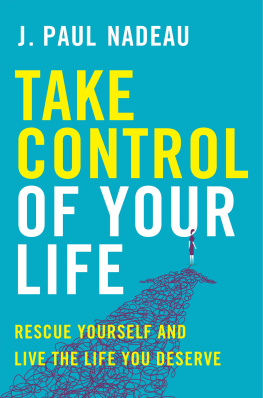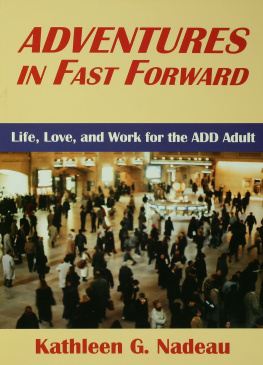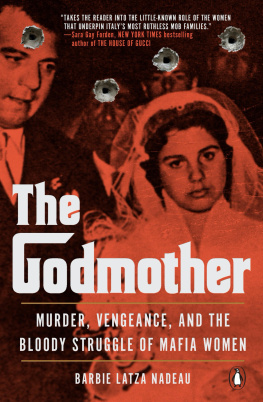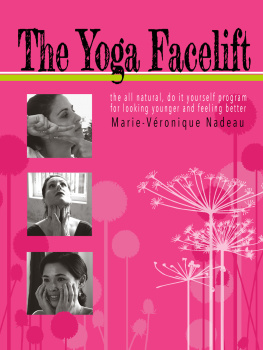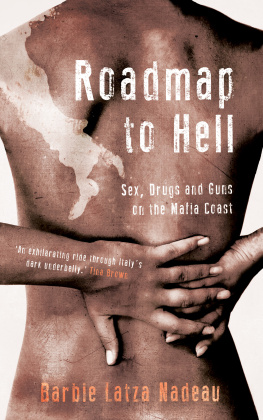I ts been said that its not so much what happens to us that matters; its how we respond to what happens that does. In my years as a trained investigator, hostage negotiator and international peacekeeper, I was privileged to meet and observe people from all walks of life, each with unique stories, attitudes and experiences. I watched how an almost identical set of circumstances frequently affected individuals very differently, due in part to their backgrounds, their ability to process thoughts and the value that they would attach to an event. Ive witnessed very different responses from hostage victims who had experienced similar events, and I have marveled at the choices they made because of those events.
While we are each endowed with a fundamental ability to choose our responses to whatever injustices, hardships and dilemmas come our way, factors such as fear can and often do eat away at our confidence. The resulting indecision, if allowed to rule and dominate, can quickly become a sad pattern perpetuating itself unconsciouslywhich in turn can easily become a syndrome. You may not even see it coming. This is the essence of being taken hostage by your self, whether external forces are the instigator or whether the cause lies entirely within your own personal perception. And once our self is made aware of our self-sabotage, this becomes the pivotal moment when choosing must occurthat is, the choice to continue the powerless-seeming state in which you find yourself, or to direct yourself to apply the un-hostaging principles set out in this bookto follow the guideposts I offer you and to exit the misery of being held hostage. Bear in mind that each adversity that takes you hostage can either defeat you or strengthen you, depending upon what you choose to do with it. Also bear in mind that choicechoosingis an action. Action requires muscle. And change does not happen simply because we want it to. We must consciously exercise our minds to make it happen. We must choose the positive over the negative. The guideposts I have set out in this book will be there to lead you as you embrace this process of choosing and of change.
And in the process of guiding you out of a state of hostage, this book will challenge you to become more conscious of your thoughts, of the emotions they are evoking as they enter your conscious mind, and of the technique of interrupting those thoughts and emotions that cause pain or simply do not serve you or your overall goals, be they personal or professional or both. To this end, each chapter begins with a story that introduces a principle. May you enjoy the stories and learn from the principles. Thats what Im after for you.
L ike many others, I was raised in an environment that required me to depend on myself at a very young age. My father was a violent alcoholic who often took out his rage on my mother, my siblings and me. From as far back as I can remember, I felt defenseless to protect my family and myself from my father; and at the age of about seven, I decided that when I grew up Id become a policeman so I could arrest men like my father. He never gave me the chance to arrest him, however. He killed himself before I would ever join the police.
Without my father as a role model, I had to learn about growing into a man by examining and modeling the behavior of others. As is often the case with abused children (and before I eventually found my way into manhood), I frequently misbehaved in school and was appropriately labeled a troublemaker. My delinquent classroom conduct assured me regular strappings. My grades were so poor that I developed the beliefs that I couldnt retain a thing and wouldnt amount to much either. That misguided way of thinking was reinforced in me by the very people who should have been building me up: my teachers.
I came to believe the bad-boy image others had labeled me with and suffered the sting of many wooden rulers on the palms of my hands for my disruptive behavior. A consistent failure, I somehow managed to graduate from one grade to another. I suspect that I passed simply because my teachers didnt want me in their classes the following year. I often felt humiliated and inferior to my classmates, and they came to know me as a disruptive, rebellious, troublemaking bad boy.
Remarkably, in Grade 7, things took an unexpected and wonderful turn. One of my teachers was preparing our class for a test. In his Lets go, team! speech to the classroom, he told everyone he expected them to passexcept for me. He singled me out, saying, I know everyone is going to pass this testexcept for you, Nadeau. I already know youre going to fail.
That was the pinch I needed to turn things around. I felt an overwhelming sense of shame and embarrassment, and for the first time, I studied my heart out. I was motivated to prove that teacher wrong. The next day I wrote the test; as was customary in that class, once the teacher had graded the tests, he distributed the papers by first calling the person with the lowest grade to the front of the classroom, followed by the second lowest and so forth. I had always been the first to stand and collect my paper. I had become conditioned to believe that I was a failure and behaved accordingly. But on that day, the teacher didnt call my name first. Name after name, my classmates were summoned to the front of the classroom to collect their papers. I was the second last to be called.
For me, that was a defining moment. For the first time ever, I discovered that I could do so much more than I had come to believe I could; and although my original motivation to succeed had been misdirected, that was the day I began to believe in myself. My former thoughts and beliefs about my abilities and limitations had been captured, and I was no longer a hostage to themor to myself. From that moment on, I applied myself, and my life unfolded in ways I had once believed impossible. My quality of life changed drastically and wonderfully because I now attracted success by simply improving my thoughts, attitudes and actions. That new confidence led to an unbeatable attitude, and that attitude resulted in success with whatever challenges I chose to undertake.
I managed to un-hostage myself from the negative thoughts and beliefs that had once held me captive, and I eventually joined the police as I had promised myself years earlier. As an officer, I became a subject matter expert in many specialized areas of police work, including sexual assault and child abuse, hostage negotiations, international peacekeeping, anti-terrorism and criminal investigations. Each of those positions provided me with hundreds of opportunities to learn from experts how to help those who felt hopeless and in need. My work required me to study psychology and develop an understanding of human behavior necessary to recognize how people think and behaveboth victims and perpetrators. I interacted and worked closely with dozens of highly skilled specialists from all walks of life, including behavioral scientists, psychologists, criminologists and university professors. I developed the necessary acute listening and communication skills needed to deal with every situation and individual I encountered, and eventually I became more than a protector, as I had first set out to become. Along the way I picked up valuable skills and discovered I could help broken, discouraged and misdirected people.
The lives I helped along the way were a testament to my childhood dream to serve and protect others. And in the process, I discovered that I too could crack and feel broken; but I also discovered how to repair my broken pieces. Human beings are not that different from one another after all. Perhaps we are far more alike than we are different. And it has been my experience that the key to healing lies in our ability to establish and nourish that interconnectedness.

